What's New
Displaying results 1681 - 1690 of 4899
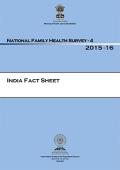
Resource | Fact Sheets,
The National Family Health Survey 2015-2016 (NFHS-4), the fourth in the NFHS series, provides information on population, health and nutrition for India and each State / Union territory. NFHS-4, for the first time, provides district-level estimates for many important indicators.
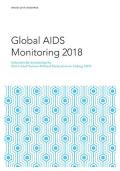
Resource | Guidelines,
The purpose of this document is to provide guidance to national AIDS programmes and partners on the use of indicators to measure and report on the country response.
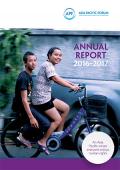
Resource | Publications,
The Asia Pacific – the world’s most populous and diverse region – is in a state of enormous flux, with many vulnerable people whose fundamental human rights are under grave threat. Conflict and insecurity have led millions of people to flee across borders in recent years, forced from their homes to seek safety but often left in precarious and exploitative situations.
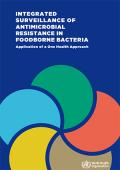
Resource | Publications,
The present guidance was developed with the support of the WHO Advisory Group on Integrated Surveillance of Antimicrobial Resistance (AGISAR) to assist countries and other stakeholders in the establishment and development of programmes of integrated surveillance of antimicrobial resistance in the foodborne bacteria (i.e., bacteria commonly transmitted by food) by taking a One Health approach. This guidance document replaces the previous version published in 2013.

Resource | Guidelines,
These guidelines present evidence-based recommendations and best practice statements on the use of medically important antimicrobials in food-producing animals, based on the WHO list of critically important antimicrobials for human medicine (WHO CIA List). These guidelines aim primarily to help preserve the effectiveness of medically important antimicrobials, particularly those antimicrobials judged to be critically important to human medicine and also help preserve the effectiveness of antimicrobials for veterinary medicine, in direct support of the WHO global action plan on antimicrobial resistance.
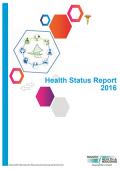
Resource | Publications,
This report is an annual compilation of health performance including disease trends, key health indicator status such as sustainable development goals, mortality rates and national roadmap indicators on health.
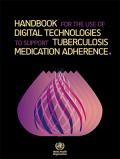
Resource | Publications,
TB patients and health-care providers are surrounded by information and communication technologies. They will be using these tools increasingly to obtain better care. However, in doing so they are often faced with basic questions, such as: Which application is best suited to my circumstances? What is the evidence for effectiveness? How do I implement it? Who will pay?
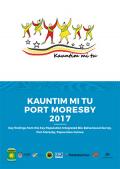
Resource | Publications,
Kauntim mi tu, an integrated bio-behavioural survey (IBBS) of women and girls who sell and exchange sex (from here on referred to as FSW), and men who have sex with men and transgender women (from here on referred to as MSM/TG), was conducted to support the scale-up of essential HIV prevention and treatment services for these populations. The survey was conducted in Port Moresby between June and November 2016 and used respondent-driven sampling (RDS) to recruit participants. Kauntim mi tu had two goals: 1) to conduct Papua New Guinea’s first population size estimations of FSW and MSM/TG; and 2) to collect representative bio-behavioral data about FSW and MSM/TG in order to inform HIV and STI prevention and treatment services and policy.
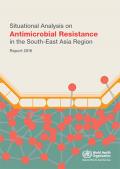
Resource | Publications,
This report is an account of the Region’s progress in developing and implementing NAPs. The report provides a platform to track what is going well, and to identify areas where extra efforts are needed. In the report, the regional roadmap for strengthening national AMR prevention and containment programmes is analysed with a specific methodology. The results gathered have been compiled to contribute to country profiles which make the report more useful.
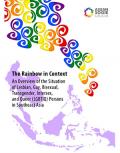
Resource | Publications,
The report highlighted key human rights trends, such as the increasing criminalization and pathologization of LGBTIQ people amidst the rising influence of conservative social forces. The report likewise discusses the increasing threats against human rights defenders working on sexual orientation, gender identity and expression, and sex characteristics (SOGIESC). Moreover, persistent discrimination in accessing social services and protection is also brought to light.





